Changing lifestyles and saving lives: How one osteopathic physician might just change health care
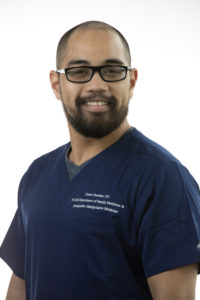 Dante Paredes, DO, looked his patient straight in the eye and with a stern tone told him he simply had two choices. He could either make a course correction now or sign the papers for hospice.
Dante Paredes, DO, looked his patient straight in the eye and with a stern tone told him he simply had two choices. He could either make a course correction now or sign the papers for hospice.
“So, is there a way to fix this?” the patient asked.
Dr. Paredes told him if he is ready and wants to, just say the word and they will start.
Patients with chronic ailments from diabetes, heart disease, hypertension and obesity are discovering new paths to better living.
Texas College of Osteopathic Medicine’s assistant professor of family medicine and HSC Health’s Dr. Dante Paredes didn’t choose this path for his career, but he has now embraced it, combining osteopathic medicine with whole health to give people their lives back.
This is the story of how Paredes is utilizing mind, body and spirit for his patients, and in the classroom.
Struggling with his obesity
He didn’t know it at the time, but Paredes turned out to be his first patient. He was more than just a slightly overweight teenager. At 17 years old, Paredes was dangerously overweight. He tipped the scales at around 215 pounds but ballooned up to 265 pounds by the time he was in college.
“I was 5’4, 265 pounds, but no muscle,” he said. “I couldn’t run, and I was just so unfit.”
Over the next few years, Paredes began weightlifting and joined a Filipino martial arts club. His diet also began to transform as he learned that the food you eat can have a profound impact on training. While he was whipping his lifestyle into shape, his career goals also came into focus.
“I didn’t even think I would be a doctor honestly,” he said. “My parents wanted me to be a doctor, but I thought I would be an engineer working in mechanics, electronics or software.”
While attending Rutgers University, he was focused on neuroscience and psychology until his junior year when he sat in on a presentation from the Rowan School of Osteopathic Medicine. It was there that his interest in osteopathic medicine was piqued. After completing his undergraduate degree in Cellular Biology and Neuroscience, he decided to give medical school a shot.
“I don’t think I wanted to go to medical school until after I got in to be perfectly honest,” he said. “I almost stumbled into being a physician out of luck and didn’t really get into it until maybe the middle of my first year.”
In medical school, he was training his own body as well as learning about it. Being around high-performance athletes in the gym and his martial arts club, his colleagues started asking for his advice on how to eat better, get their sugars under control and eat fewer carbs. Paredes became their pseudo-primary care physician.
“I was training for my own sake in the gym a lot while going to medical school,” he said. “The people I trained with asked questions, and they would trust me to bring them back the answers.”
It was during this time that his own body began to transform. Down from the chubby 265 pounds, Paredes worked his weight down to a svelte 175. He gave advice on how to eat right, how to train and how to avoid diabetes through diet.
After he finished up his residency in New Jersey, he arrived at HSC on July 1, 2018, for his Osteopathic Neuromuscular Medicine Residency and began practicing one year later for the same program that trained him.
An unexpected passion
In addition to changing lifestyles, Paredes is also finding incredible success in getting people off medications, which he calls “tactically useful, but insufficient on their own.”
Throughout medical school and residency, Paredes expected to be working with top-flight athletes and professionals in very active fields, but things changed. At HSC Health, he saw his patients taking an interest in what he taught his athletes, but these were patients with chronic diseases and ailments, heart disease, diabetes and obesity — not well-conditioned individuals. Could they do it?
“I knew this was practical for my athletes,” he said. “I assumed this was actionable for the right patients. Then as I started practicing more and treating more patients with the same respect and expectations as my athletes, that bar started getting lower and lower: from those who are ready and willing to those who are willing, or maybe for those who don’t even want to hear it. I keep lowering that bar more and more, and then I was surprised by patients rising to meet my expectations more often — not everybody, but more often than I expect.”
His first case stands out as an example. Paredes provided his patient with an escape after being dangerously close to death. After a strenuous six-week plan of exercise and diet, the patient became better and was stable enough to take a break.
“We gave him more time with his kids, and that’s really time he shouldn’t have had,” he said.
Each plan is different and tailored toward each patient. Along with Paredes, the team at HSC Health — consisting of Maria Crompton, DO, James Aston, DO and Megan Wesling, PharmD — will determine what the chronic disease situation is for each patient. Their focus is primarily on non-alcoholic fatty liver disease, type 2 diabetes and coronary artery disease.
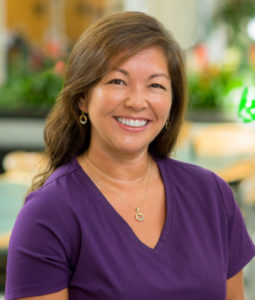
They structure a plan that incorporates a combination of fasting, calorie restriction, removal of overly processed foods and carbohydrate reduction centered around their disease and performance demands. Dr. Wesling, an assistant professor at HSC’s College of Pharmacy and the team’s ambulatory care pharmacist, works with the provider to monitor the patient’s progress and create a plan that will reduce the dosage and ultimately discontinue the patient’s medications.
If the patient is diabetic and on insulin, the medical team will use glucose monitors to provide a layer of protection. As the patient begins to regain energy from dietary changes, they move into exercise, physical training and mental health. There is also a period of fasting, typically a 16:8 ratio, meaning 16 hours of fasting and eight hours of eating.
This continues until they hit the desired goal. Once that is achieved, the next phase is reintroducing carbs and reducing the fasting period to establish a new normal for the patient.
The results speak for themselves. Paredes is actively following 109 patients and 20 have hit their clinical goals with one or more of their chronic diseases in remission. Those diseases range from type 2 diabetes, obesity, hypertension and heart disease. In 2021, 12 patients were completely off their medication.
“Give me a guy with two CBGS (open-heart surgeries), he’s on a bunch of meds because his body is officially broken down and I can minimize the medicine burden,” Paredes said. “It would be inappropriate for me to say I can get him off everything because so much damage has been done, but the minimum is good. My real goal is that they live better and optimize their situation. If the best possibility is they are healed, I will push them to reach that goal.”
Saving a life
Rodney Willis was a track and field coach for more than 30 years at Evanston Township High School in Evanston, Illinois. He was around great athletes for much of his career, but he struggled with high blood pressure and was pre-diabetic. Having just celebrated his 68th birthday, Willis doesn’t mince words when talking about what Paredes has done for him.
“I want the world to know, he saved my life,” Willis said.
He first came to Paredes early in 2020, right as the COVID-19 pandemic was sweeping the world, for a physical. After nearly a year of virtual visits, Paredes was gathering the information he needed to help Willis. Then came September 2021.
“That’s when he lowered the boom on me,” Willis said. “He asked me to come aboard with his plan. I knew I could do it, but I had never been on a diet before in my life. You have to be disciplined, but you will see the results.”
Willis dove headfirst into the plan and the results paid off. He followed the plan, worked out regularly, and kept a log of his diet. Now he’s down to 185 pounds and feeling better than he’s ever felt.
“In the back of my mind I was like ’yeah right,’ but it will work,” Willis said. “The change has been drastic. He made my self-being clearer and, in a sense, he’s rejuvenated me as a 68-year-old man. This program has totally changed my life. I’m never going back to my old lifestyle.”
That regimen included working out for three days, fasting at different intervals throughout the day and taking a very disciplined approach to certain foods. He’s lifting weights, walking six miles a day and now and then he “cheats” a little bit on his diet, but with his doctor’s blessing of course.
Willis also sees another component to what Paredes is teaching and implementing: helping the fight against health disparities, especially among those in the African-American community.
“Our community is in a quandary as far as health issues are concerned,” Willis said. “This diet is really inexpensive, and I would like to see more understand the metabolic changes in our body and make themselves healthier. We need to talk with more Black individuals, Latinos and others about this.”
Willis is clear: His entire body top to bottom has never felt better.
“Dr. Paredes was in front of me, behind me and there for me for me the entire way,” he said.
A total team effort
While the world is emerging from the post-pandemic life, there remains an epidemic: obesity. According to the most recent rankings released by WalletHub in March, the Dallas-Fort Worth metroplex ranks as the 27th “fattest city” in the country. The rankings measure numerous data points, including physically inactive adults and the percentage of adults with high cholesterol, high blood pressure and diabetes — everything Paredes is fighting.
Paredes, Wesling, Crompton and Aston emphasize lifestyle, diet and a holistic approach. Succinctly put, they are practicing osteopathic medicine.
“When I was initially doing the work, I didn’t notice it,” Paredes said. “I was doing it naturally. It took until maybe last year for my colleagues to call me out and say, ‘You know you are doing the osteopathic thing.’ I said, ‘What are you talking about? I haven’t touched a back in months.’ The idea of mind, body and spirit — the holistic approach — is what I held onto, and, apparently, that’s the part I’ve taken on.”
With the osteopathic approach and the implementation of a new lifestyle, HSC Health is possibly on the verge of changing the way people live.
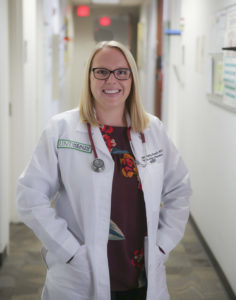
“The opportunities are endless with this program,” Wesling said. “The literature that supports the efficacy of specific diet and exercise programs continues to grow and the ability to translate that data directly into patient care here at HSC Health is exciting. We’ve seen the program work for a diverse patient population with different makeups of disease burden and non-medical factors that influence health outcomes (e.g., social determinants). I think what makes me most excited is that the tailoring of the program can work for all patients who are motivated to make the change and, ultimately, influence better health outcomes.”
Paredes is now accepting patients in the Metabolic & Longevity Center housed in the Family Medicine clinic of HSC Health. The Metabolic & Longevity Center focuses on getting people off of medication and eating healthier to live their best lives, something many patients did not know they could ever do again.
Whether it’s a calling or perhaps he sees himself in each patient he treats, Paredes has found answers for so many who are struggling.
While everyone is different, if the question “Is there a way to fix this?” should ever arise, the team at HSC Heath will have a solution.
To schedule your appointment in the Metabolic & Longevity Center, call 817-735-7800.
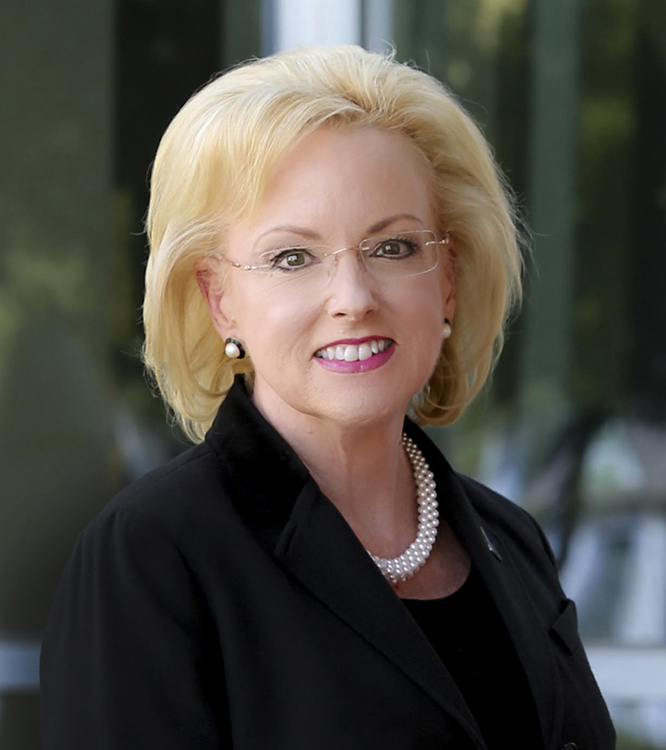
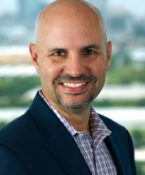


Social media